#14 November 1938
Photo





The Lions Gate Bridge, connecting Vancouver to the North Shore region, opened to traffic on November 14, 1938.
#Lions Gate Bridge#First Narrows Bridge#opened#14 November 1938#travel#anniversary#Canadian history#Vancouver#BC#British Columbia#vacation#summer 2012#original photography#architecture#engineering#cityscape#Stanley Park#Pacific Ocean#Burrard Inlet#West Vancouver#Charles Nicholas Monsarrat#Philip Louis Pratley#I'll be back next summer
66 notes
·
View notes
Text
An updated (April 3, 2024 7:48am pst) list of WW2 movies and TV shows in chronological order
thought out WW2
-(Imitation Game 2014)
-(The Book Thief 2013)
-(The Zookeeper’s Wife 2017)
-(The Pianist 2002)
1937
October 26, 1937 Defence of Sihang Warehouse (The Eight Hundred 2020)
December 13, 1937 Nanjing Massacre
- (John Rabe 2009)
- (The Flowers of War 2011)
1938
Fall of 1938 (Munich – The Edge of War 2022)
1939
Summer 1939 (Six Minutes to Midnight 2020)
September 3, 1939 King George VI first wartime speech (King’s Speech 2010)
September 17, 1939, Soviet Union Invitation of Poland (The Way Back 2010)
November 30, 1939 Soviet Union invades Finland (The Winter War 1989)
1940
April 9, 1940 Operation Weserübung
-(April 9th [movie] 2015)
-(King’s Choice 2016)
-(Narvik 2022)
-(War Sailors 2023)
April 27, 1940 (Into the White 2011)
June 4, 1940
-Churchill gives “We Shall Fight on the Beaches” speech (Darkest Hour 2017)
-Dunkirk Evaluation (Dunkirk 2017)
July 10-October 31, 1940 Battle of Britain (Battle of Britain 1969)
1941
May 1941 (Call to Spy 2019)
June 22, 1941 Operation Barbarossa
-(Fortress of War [The Brest Fortres 2010)
-(Defiance 2008)
September 8, 1941, Siege of Leningrad begins.
-(Battle of Leningrad [Saving Leningrad] 2019)
-(Leningrad 2009)
October 1941 Battle of Moscow (The Last Frontier [The Final Stand] 2020)
October 1941 Battle of Sevastopol (Battle for Sevastopol 2015)
December 7, 1941, the Empire of Japan attacks Pearl Harbor (Tora! Tora! Tora! 1970)
December 8, 1941 Japan invades Shanghai International Settlement (Empire of the Sun 1987)
1942
January 20, 1942, Wannsee Conference (Conspiracy 2001)
February 1942 Battle of the Atlantic (Greyhound 2020)
February 1942 (The Railway Man 2013)
February 19, 1942, Bombing of Darwin (Australia 2008)
Spring 1942 (U-571 2000)
April 18, 1942 The Doolittle Raid (In Harm’s Way 2018)
June 4, 1942 Battle of Midway (Midway 2019)
1942 Summer Occupation of Jersey Island (Another Mother’s Son 2017 Prime)
July, 10 1942 Easy Company Trains in Camp Tocca (Band of Brothers 01x10 Currahee 2001)
July 21, 1942, Kokoda Track Campaign (Kokoda: 39th Battalion 2006)
August 7, 1942, 1st Marine Division land on Guadalcanal (The Pacific Ep. 1 Guadalcanal/Leckie 2010)
August 19, 1942, Dieppe Raid (Dieppe 1993)
August 23, 1942 Battle of Stalingrad begins (Stalingrad 1993)
September 1942 Formation of Troop 30 (Age of Heroes 2011)
September 18, 1942, 7th Marines Land on Guadalcanal (The Pacific Ep. 2 Basilone 2010)
Autumn of 1942 Battle of the Atlantic (Das Boot 1981)
October 18, 1942, Operation Grouse (Heavy Water War Ep. 2 2015)
November 8, 1942, Operation Torch (The Big Red One 1980)
November 10-17 1942 Vasily Zaytsev kills 225 German Soldiers during the Battle of Stalingrad (Enemy at the Gates 2001)
December 1942 The 1st Marine Division on Guadalcanal is relieved (The Pacific Ep. 3 Melbourne 2010)
December 15, 1942, Battle of Mount Austen (Thin Red Line 1998)
1943
March 13-14 1943, liquidation of the Kraków Ghetto -(Schindler’s List 1993)
April 17, 1943 Operation Mincemeat (Operation Mincemeat 2021)
April 19, 1943, beginning of the Warsaw Uprising (Uprising 2001)
May 4, 1943, Final Mission of The Memphis Bell (Memphis Bell 1990)
May 15, 1943, Salamo Arouch and his family arrive in Auschwitz Concentration Camp (Triumph of the Spirit 1989)
May 27, 1943 Louis Zamperini plane crashes on a search and rescue mission (Unbroken 2014)
May 30, 1943 first All-American Girls Professional Baseball League game played (A League of Their Own 1992)
June 25, 1943, 100th Bomb Group flew its first 8th Air Force combat mission (Master of the Air: Part One 2024)
July 1943
-(The Tuskegee Airmen 1995)
-(The Liberator Ep. 1 2020)
-(Heavy Water War Ep. 5 2015)
July 16, 1943, The 100th Bomb Group bombed U-Boats in Tronbhdim (Masters of the Air: Part Two 2024)
August 17, 1943 the 4th Bomb Wing of the 100th Bomb Group bombed Regenberg (Masters of the Air: Part Three 2024)
September 16, 1943, William Quinn and Charles Bailey leave Belgium (Masters of the Air: Part Four 2024)
September 18, 1943 John ‘Bucky’ Egan returns from leave to join the mission to bomb Munster (Master of the Air: Part Five 2024
October 14, 1943, John ‘Bucky’ Egan interrogated at Dulag Lut, Frankfurt Germany (Masters of the Air: Part Six 2024)
December 26, 1943, 1st Marine Division lands on Cape Gloucester (The Pacific Ep. 4 Gloucester/Pavuvu/Banika 2010)
1944
January 22, 1944, Battle of Anzio
-(The Liberator Ep. 2 2020)
-(Red Tails 2012)
-(Anzio 1968)
February 20, 1944, Hydro Ferry bombing (Heavy Water War Ep. 6 2015)
March 7, 1944, Stalag Luft III Sagan, Germany, Germans find the concealed radio Bucky was using to learn news of the War (Master of the Air: Part Seven 2024)
March 24/25, 1944 Allied Mass Escape of Stalag Luft III (The Great Escape 1963)
June 1944 (Cross of Iron 1977)
June 6, 1944, 00:48 & 01:40 First airborne troops begin to land on Normandy (Band of Brothers 02x10 Day of Days 2001)
June 6, 1944, 06:30 D-Day landings
-(Storming Juno 2010)
-(Saving Private Ryan 1998)
June 10, 1944, Easy Company Takes Carentan (Band of Brothers 03x10 Carentan 2001)
June 15-July 9, 1944 Battle of Saipan
-(Windtalkers 2002)
-(Oba: The Last Samurai 2011)
July, 1944 The Monuments Men land in Normandy (The Monuments Men 2014)
July 20, 1944 Operation Valkyrie (Valkyrie 2008)
August 12, 1944, The 332nd Fighter Group attack Radar stations in Southern France (Masters of the Air: Part Eight 2024)
September 15, 1944, U.S. Marines landed on Peleliu at 08:32 (the Pacific Ep. 5 2010)
September 16, 1944, U.S Marines take Peleliu Airfield (the Pacific Ep. 5 2010)
September 17, 1944, Operation Market Garden
-(Band of Brothers 04x10 Replacements 2001)
-(A Bridge Too Far 1977)
October 2, 1944 Battle of Scheldt (Forgotten Battle 2021)
October 12, 1944, Battle of Peleliu, Assault on Bloody Nose Ridge (the Pacific Ep. 7 Peleliu Hills 2010)
October 13, 1944, Rovaniemi public buildings were destroyed (Sisu 2022)
October 14, 1944, Erwin Rommel is arrested (Rommel 2012 Prime)
October 22/23, 1944, 2100 – 0200 Operation Pegasus (Band of Brothers 05x10 Crossroads 2001)
November 1944 middle of the Battle of Hürtgen Forest (When Trumpets Fade 1998)
December 16, 1944, Battle of the Bulge (Band of Brothers 06x10 Bastogne 2001)
December 1944 (Hart’s War 2002)
1945
January 2, 1945 (The Liberator Ep 3 2020)
January 10, 1945 (Attack Force Z)
January 13, 1945, Battle of Foy (Band of Brothers 07x10 The Breaking Point 2001)
January 30, 1945 The Raid at Cabanatuan (The Great Raid 2002)
February 14, 1945, David Webb rejoins the 506th in Haguenau (Band of Brothers 08x10 The Last Patrol 2001)
February 19, 1945, Battle of Iwo Jima starts.
- (Letters from Iwo Jima 2006)
- (The Pacific Ep. 8 Iwo Jima 2010)
- (Flags of our Fathers 2006)
March 21, 1945, Operation Carthage (The Bombardment 2021)
April, 1945 (Fury 2014)
April 5, 1945, 506th Finds abandoned Concentration Camp
(Band of Brothers 09x10 Why We Fight 2001)
April 26, 1945, near the end of the war in Europe (A Woman in Berlin 2008)
April 29, 1945, 45th Infantry Division liberated Dachau Concentration camp (The Liberator Ep. 4 2020)
May 2, 1945, Fall of Berlin
-(Downfall 2004)
-(Jojo Rabbit 2019)
May 1945 Battle of Okinawa
-(Hacksaw Ridge 2016)
-(The Pacific Ep. 9 Okinawa 2010)
May 7, 1945, Germany Surrenders V-E Day
- (Master of the Air: Part Nine 2024)
- (Band of Brothers 10x10 Points 2001)
July 30, 1945, USS Indianapolis sank.
(USS Indianapolis 2016)
August 15, 1945, The Empire of Japan surrenders end of the War.
-(Oppenheimer 2023)
-(The Pacific Part Ten: Home 2010)
September 11, 1945 US Military search and Arrest Japanese Leaders for war crimes (Emperor 2012)
1946
April 29, 1946 Tokyo War Crimes Tribunal (Tokyo Trial 2016)
62 notes
·
View notes
Text
Notes on historical context
A huge part of fic writing in the HBO War fandom lies in historical research - I'm sure my writer friends can all attest to this - and it's personally one of my favourite parts of the whole process! As a result, I've decided to compile a few notes on the history used in my two current MoTA fics; I'm Your Man and Better Off
I'm aware this probably isn't interesting to a lot of people, but to any kindred spirits I hope you enjoy 😂
I'm Your Man
Frankie's hometown - Stratford-upon-Avon
Stratford-upon-Avon is a market town in the county of Warwickshire in the English West Midlands, which has existed as a settlements since the Roman occupation, but is particularly notable for being the birthplace of famous playwright William Shakespeare. The house in which Shakespeare grew up in remains a popular tourist attraction, evidencing visits from several notable writers including Charles Dickens and Lord Byron.


The Coventry Blitz
In Chapter 4, Frankie references the Coventry Blitz - a series of bombing raids between 1940-42, most notably on the night of 14th November 1940. In a single night, two-thirds of the city's buildings were damaged or destroyed, making it the most concentrated bombing of an English city in the entire war. In the aftermath, the word 'Coventration' was coined by Joseph Goebells to refer to the act of completely destroying a city through aerial attacks. I have spoken to people who lived in the towns around Coventry during this time who recall large groups of displaced families walking from town to town in search of shelter, as the destruction of housing was so extensive that people could not remain within the city.
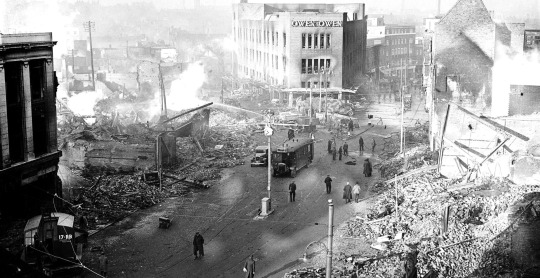

Rationing
In the first few chapters, Frankie makes several references to the state of food rationing in 1943. Throughout the Second World War, food supply in the UK was severely limited due to its reliance on imports, and the economic state was so dire following the war that Britain continued rationing until 1954. Huge campaigns were introduced encouraging people to grow and supply their own food, and many commodities became unavailable due to shortages in certain ingredients. One such example was the production of Cadbury's chocolate, which had to be altered to 'Ration chocolate' due to milk shortages.

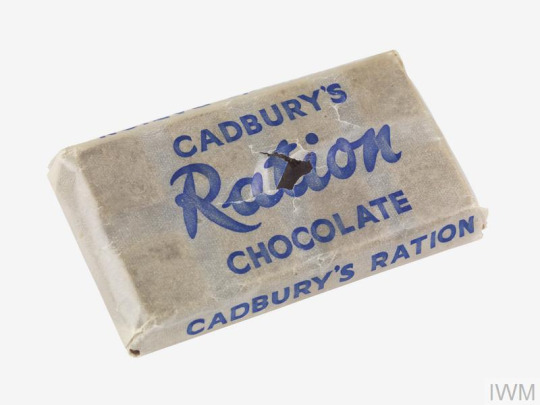
The Young Visiters by Daisy Ashford
In Chapter 7, Frankie is seen reading The Young Visiters, a hugely popular book published in 1919. The book's charm and popularity came from its author, as Daisy Ashford was allegedly only nine years old at the time of publication, and her unconventional writing and youthful misunderstanding of Victorian high society lend to the book's rather bizarre sense of humour.
Education
In Chapter 6, Rosie learns to his surprise that Frankie has not attended school since she was 14 years old. Under the 1918 Education Act, the school leaving age was raised from 12 to 14 years old, with high drop-out rates due to the inaccessibility of many schools to the working class.
━━━━━━━━━━━━━━
Better Off
The ATS
The Auxiliary Territorial Service was active from 1938, and operated as the women's branch of the British Army until it was absorbed into the Women's Royal Army Corps in 1949. The National Service Act of 1941 called for all unmarried women between the ages of 20 and 30 to join one of Britain's auxiliary services, and by 1943 nine of out every ten women were taking an active role in the war effort. Due to manpower shortages, many ATS women took on roles in radar and anti-aircraft defense, resulting over 700 casualties throughout the war. Most notable of the ATS volunteers was Princess Elizabeth Windsor (later Elizabeth II), who worked as a mechanic as well as driving lorries and ambulances.
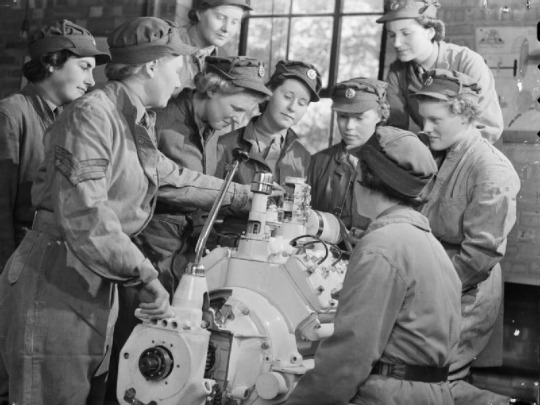
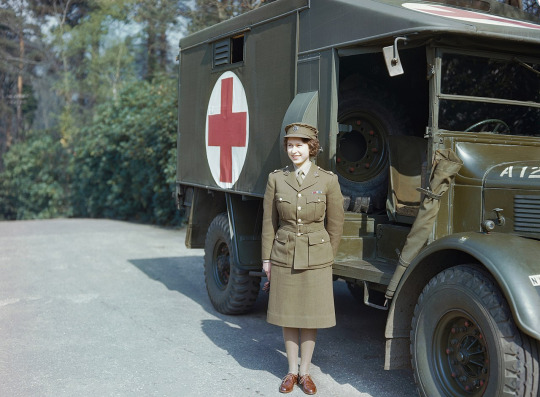
The Manchester Blitz
The attack which killed Susie's sister Ellie was a part of a series of bombing raids known as the Manchester Blitz, which took place between 1940 and 1942. Manchester and its surrounding towns were key for war production, and as such targeted heavily by the Luftwaffe, resulting in approximately 1,000 deaths. The nights of the 22nd and 23rd of December 1940 were the most devastating attacks on Manchester during the war, with more than 450 tons of explosives dropped across the two consecutive nights.

Back-to-back houses
The home that Susie's family were raised in was part of a large wave of construction in the UK of so-called 'back-to-backs', designed to support the huge influx of working-class families moving into urban areas during the Industrial Revolution. Back-to-backs were built quickly and cheaply, and named due to their shared back walls, which saw one row of houses facing the street and another rear row facing either another road or an interior courtyard. These houses were often very cramped, with only one room per floor, and usually had two to three stories, occasionally with a cellar too.
It was rare for back-to-backs to accommodate indoor plumbing, with washhouses and toilets located outside in the yards. Due to poor living conditions, the construction of new back-to-backs was forbidden in 1909 after a report discovered mortality rates to be significantly higher than those of people living in other styles of housing. Waves of slum clearance before and after the Second World War saw the numbers of back-to-backs decline rapidly, and Leeds remains the only area of England that still contains large numbers of livable back-to-backs. The only surviving courtyard back-to-backs now exist in Birmingham, preserved as a museum.


38 notes
·
View notes
Text
MY FNAF VERSION/AU MASTERPOST!
Little disclaimer my version of FNAF is VERY VERY CLOSE TO CANON.
Everything from lifespans of the businesses to characters to the main plot is under the cut.
Fredbear's Family Diner 1964-1983
Sister Location (Circus Baby’s Funland) 1984
Freddy Fazbear’s Pizza 1984-1993
Fazbear’s Frights 2023-2023
Faux Fazbears 2024
Pizzaplex 2030
The order of the games is such: 5 - 4 - 2 -1 - 3 - 6 - UCN - SB
Characters
William Afton (October 14 1938 - ???)
Henry Emily (June 10th 1939 - September 15 2024)
Michael Afton (February 13 1969 - April 16 2031)
Elizabeth Afton (May 4 1976 - May 6 1984)
Evan Afton (July 6 1977 - July 8 1983)
Charlie Emily ( December 6 1971 - 1983)
Elanor Afton-Schmidt (February 15 1943 - March 6 1978)
Ruth Emily-Davis (November 26 1941- October 1 2026)
Jenny Smith (March 25 1970 - )
Evan Jr. Smith ( October 13 1987 - April 5 2030 )
Vanessa Williams ( September 29 1999 - )
William was born to James and Helen Afton in Essex, England. James died in WW2 in 1944 when William was 6. Helen remarried in 1946 to a man by the name of George. George resented and was highly abusive to William, their relationship was strained at best. Once William turned 18 he moved to America to pursue a college education. He never regained contact with his mother and step-father. William went to college for a degree in engineering in 1956. There he met Henry and they quickly became friends. One year later he met Elanor and they married in 1959. They had three children together.
Henry was born to Edward and Dorothy Emily in Hurricane Utah. He had a normal childhood growing up and went to college in 1957 where he met William. He ended up marrying his highschool sweetheart Ruth in 1961. They had their only child Charlie in 1971. They then divorced in 1981.
Michael is the oldest son of William and Elanor, he was born and raised in Hurricane, Utah. After his mother dying when he was 9 his father started to abuse him, it subsequently got worse as his brother and sister passed. He met his girlfriend Jenny when he was 18 and they quickly had a child, Evan Jr. He worked as a security guard for multiple Fazbear Ent. Inc. locations.
Elizabeth and Evan are the two younger children of William and Elanor. They were born only a year apart and were favorited by William, their mother died when they were too young to remember her and became highly attached to William. Both died very young. Elizabeth possessed Circus baby and Evan possessed Golden Freddy.
Charlie Emily was the only child of Henry and Ruth. She grew up very close to her “cousins” Michael, Elizabeth, and Evan. She had a good relationship with her “uncle” William. She was murdered by William at 12 years old and possessed the puppet.
Elanor Schmidt was the wife of William and mother of Michael Elizabeth and Evan. She was a proficient ballet dancer and ended up being a stay at home mother to her three children, she had a loving relationship with her husband but it ended up tense at the end of it, she was murdered by her husband in 1978.
Ruth Davis was the wife of Henry and mother of Charlie. She met Henry in highschool and they had a decent relationship until they drifted apart and ended up divorcing. She gave up parental rights to Henry.
Jenny Smith is the girlfriend of Michael Afton and the mother of Evan Jr. She met Michael when she was a teenager and supported him through his teenage years, which lead them to fall in love with each other. She got back together with Michael after his accident and they raised Evan together.
Evan Jr. Smith is the son of Michael and Jenny. He had a normal childhood and early adulthood. He ended up being possessed by his grandfather William and lost his sense of self in 2030 and essentially died.
Vannessa Williams is a security guard at the Pizzaplex. She resurrected William and helped him possess his grandson. They are in a strenuous relationship.
Main timeline of events
Henry and William start Fredbear’s Family Diner in 1964
William suffers a springlock accident, permanently scarring him.
Michael Afton is born in 1969
Charlie Emily is born in 1971
Fredbear’s Family Diner opens more locations.
Elizabeth Afton is born in 1976
Evan Afton is born in 1977
In 1978, Elanor Afton is killed by her husband William with a sledgehammer. He takes her body and disposes of it in the Utah desert. Due to marital conflicts being known, he is interrogated but the case is quickly dropped.
Evan Afton’s 6th birthday takes place in Fredbear’s in 1983. His older brother and his friends put his head into the Fredbear animatronic and Evan’s head is quickly crushed. He is rushed to the hospital and put into a medically induced coma. The events of FNAF 4 take place in his head over a week when he is pronounced brain dead and dies. He possesses the Fredbear animatronic.
Over the next year, William’s mental health rapidly deteriorates and he becomes obsessed with the idea of possession. He theorizes that his son is in the fredbear animatronic and starts to design animatronics to test his theory by giving them the capability to capture and kill children inconspicuously.
A sister location known as Circus Baby’s Funland is opened with William’s new animatronics. Elizabeth becomes infatuated with one of the robots, Baby, based off of her. William commands her to stay away but she defies his orders and is killed by Baby.
William’s sanity decreases once again.
Henry, noticing the problems in his business partner's life and mental state, and proximity to horrific accidents, forces him to leave the company for his own good. He also secretly fears for his own daughter's safety. Henry designs an animatronic puppet to act as a watchguard for her.
One night Charlie is locked outside of Fredbear’s Family Diner and William murders her in the alley next to the building. The puppet follows Charlie outside and she possesses her. William is dropped as a potential assailant due to lack of evidence.
After this death, the restaurant chain is renamed to Freddy Fazbear’s Pizza in 1984
New animatronics are designed (toys) and new locations are opened up subsequently.
Michael and Jenny have Evan Jr.
William disguises himself as a security guard, uses his springbonnie suit, and murders five children in 1987.
Due to the murders, the restaurant is about to be shut down, but one more party takes place, during this time, a security guard by the name of Jeremy Fitzgerald gets bitten in the head by Mangle, this is the bite of ‘87
The location is shut down and William is apprehended due to previous speculation, he is let go due to the police being unable to find the bodies.
In 1993 a new location is opened up with refurbished animatronics, Michael is hired as a nightguard but ends up being fired.
One night, William enters the building in an attempt to dismantle the animatronics. He is confronted by the ghosts of the murder victims. In an attempt to scare them off, William dons the springbonnie suit, but the suit malfunctions.
William dies in 1993 in the backroom of a Freddy Fazbear’s Pizza. He possesses springbonnie.
Learning of William’s disappearance, Henry closes off every backroom in every location under the guise of “budget cuts’
In 1995, Michael travels to the underground bunker holding Baby and the other Circus Baby’s Funland animatronics to rectify his mistakes and find out more about his father. Baby and the rest manipulate Michael into helping them escape, and they end up leading him into the scooping room, scooping out his organs and killing him. Baby and the others congeal into one animatronic and enter Michael’s body. They use his body as an attempt to conform to civilian life but it starts to rot and it expels them.. Michael’s soul possesses his own body, essentially becoming undead.
After being expelled, infighting causes Baby to be removed from Ennard due to her being Afton's daughter and refusing to kill Michael. She rebuilds herself and Ennard becomes Molten Freddy.
Michael, being undead, finds Jenny, who accepts him, and they begin to raise Evan together.
30 years pass.
The children’s murders essentially become urban legend at this point.
In another attempt to dispel the urban legend, Fazbear Ent. Inc. opens a horror attraction known as Fazbear Frights in California. Michael starts to work there to continue his hunt for his father.
Springtrap is transported to the location as a prop, as workers found his body.
Michael and Springtrap fight and Michael sets the building on fire. Springtrap survives as well as Michael, and Michael captures him and drives him to Utah so Henry can deal with him.
Springtrap escapes Michael’s capture.
In a desperate attempt to end everything once and for all, Henry opens up a fake pizzeria in 2024 to lure all the still roaming souls.
In a miracle, it works, and Springtrap, Baby, Molten Freddy, Golden Freddy, and the Puppet (in Lefty) all arrive.
Michael works at the building to help Henry during this.
Henry locks down the building and sets it ablaze, killing everyone and himself in the building. Michael survives.
William is sent to Hell, to be tormented by Cassidy for eternity, she traps all of the other souls alongside her to torment William as well. Henry eventually convinces her to release the souls and pass on herself to leave William to burn in hell.
Six years pass.
Fazbear Ent. Inc. opens up the Pizzaplex, with all new animatronics and redesigns.
Vanessa works at the Pizzaplex as a security guard.
Evan Jr. Works at the Pizzaplex as an animatronic engineer.
Due to her obsession with the murders and William, she attempts to bring him back to life, and it works.
He ends up possessing her, and appears in her head as Glitchtrap.
Vanessa finds Williams old body (springtrap) under the pizzaplex and slowly starts to rebuild it so william can possess it.
William possesses his body again.
After the battle with Gregory and Glamrock Freddy, his body gets destroyed and he possesses his grandson, Evan Jr. Him and Vanessa escape.
William and Vanessa work together over a year to start murdering children again, as William wants remnant due to it extending life and he does not want to return to Hell.
Michael goes to the pizzaplex and attempts to stop Vanessa and William.
He ends up getting murdered by William.
Michael possesses Glamrock Freddy.
The future of this is up to debate :)
23 notes
·
View notes
Text
Joachim Peiper
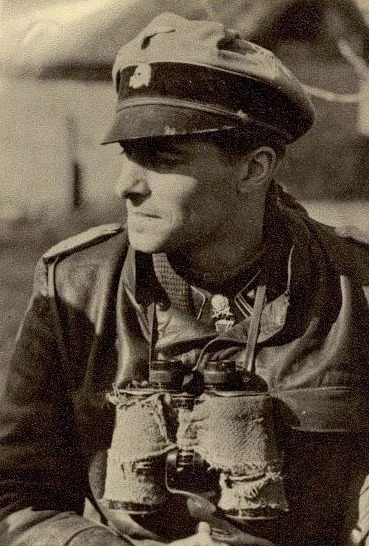
These are some facts and curiosities about Joachim Peiper:
He was born on 30 January 1915
His father, Captain Waldemar Peiper, was in the German Imperial Army and fought in the colonial campaigns in East Africa. He was awarded the military cross in 1904, wounded several times and became infected with malaria.
He had two brothers: Hans-Hasso and Horst. Hans-Hasso attempted suicide but was left in a vegetative state. He died of tuberculosis in 1942.
He followed his other brother Horst and joined the Scout movement. It was during this time that he developed an interest in a military career.
He took the SS Oath in November 1935 and completed his education at the Junkerschule in January 1936.
On 4 July 1938, Peiper was appointed to an administrative post as an adjutant to Heinrich Himmler,under the command of Karl Wolff.
After Poland was defeated, Peiper worked with Himmler to develop policies and plans for controlling the Polish population.
On 9 March 1943, Peiper was awarded Germany's highest decoration, the Knight's Cross of the Iron Cross.
The descriptions of his tactical skills propelled Peiper to become an icon of the Waffen-SS after the war, with former battalion members describing him in glowing language.
He was seen as an officer who obeyed orders without much discussion and expected the same from his men
On 19 September, Italian partisans in the village of Boves captured two of Peiper's men. The two men were freed, but the Germans then set fire to the houses in the village and killed 22 men when they tried to flee.
He insisted his unit massacred no civilians in Boves.
In January 1945 the Swords were added to his Knight's Cross.
Sentenced to hang, the sentence was later commuted to life imprisonment, but he was released on parole in December 1956.
He died on July 14, 1976
Sources:
Wikipedia: Joachim Peiper
Military Wiki: Joachim Peiper
I DON'T SUPPORT NAZISM,FASCISM OR ZIONISM IN ANY WAY, THIS IS AN EDUCATIONAL POST
46 notes
·
View notes
Text
Notable Deaths in 2023 . . .
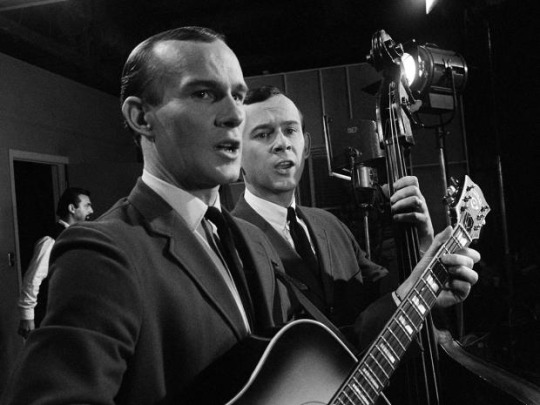
Tom Smothers (February 2, 1937-December 26, 2023)

Ryan O'Neal (April 20, 1941-December 8, 2023)
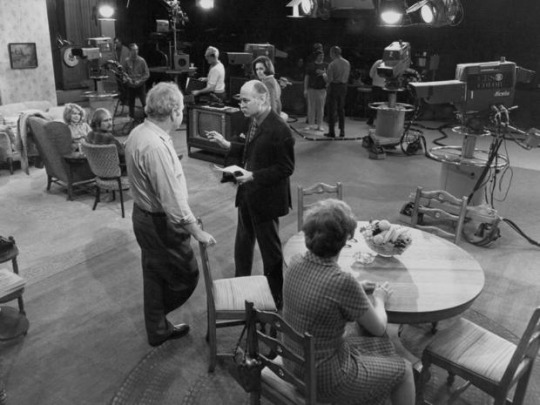
Legendary TV producer Norman Lear (July 27, 1922-December 5, 2023)
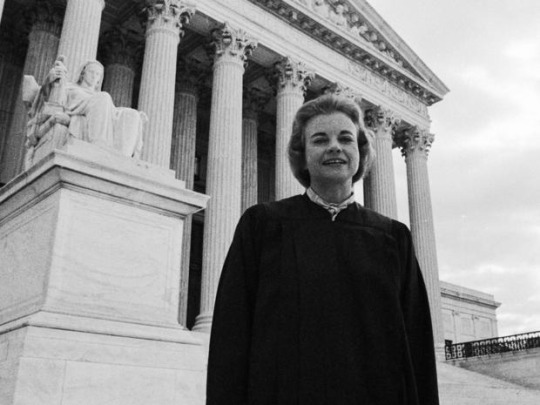
Sandra Day O'Connor (March 26, 1930-December 1, 2023)

Former first lady Rosalynn Carter (August 18, 1927-November 19, 2023)
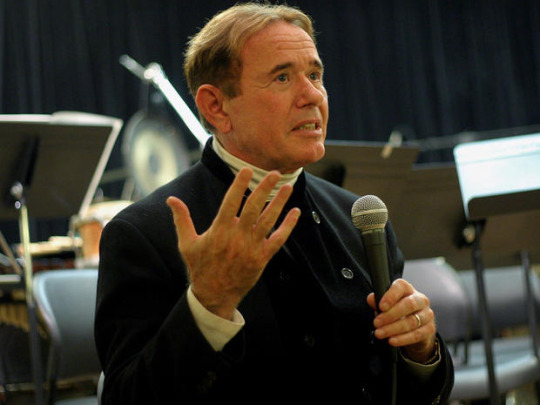
Pulitzer Prize-winning composer David Del Tredici (March 16, 1937-November 18, 2023)

A U.S. Air Force fighter pilot and instructor at West Point, astronaut Frank Borman (March 14, 1928-November 7, 2023)

College basketball coach Bob Knight (October 25, 1940-November 1, 2023)

As Chandler Bing, a quick-witted, sarcastic member of the coterie of "Friends," Matthew Perry (August 19, 1969-October 28, 2023)
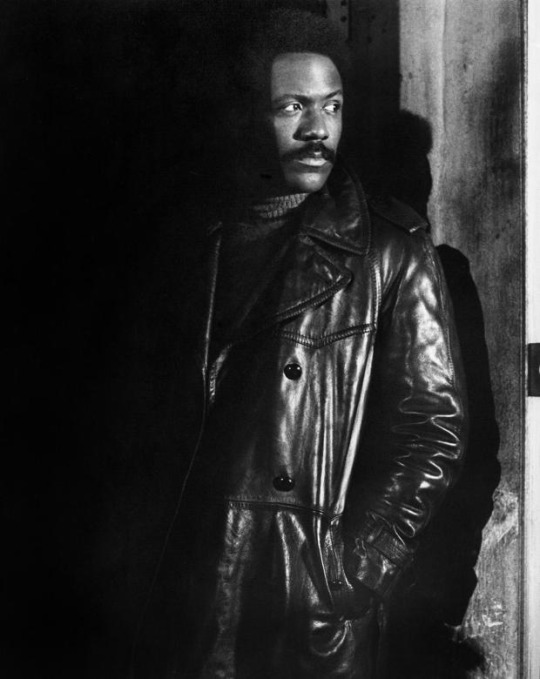
As the star of the trailblazing 1971 action movie "Shaft," Richard Roundtree (July 9, 1942-October 24, 2023)
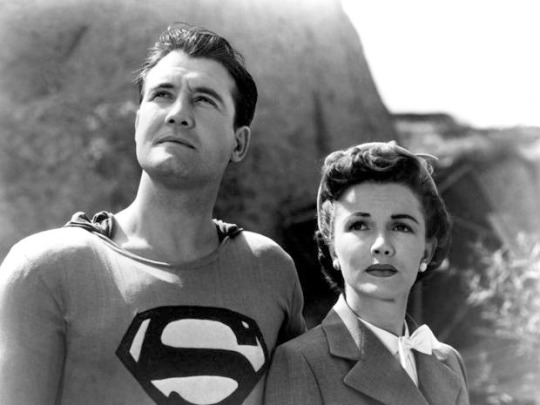
Actress Phyllis Coates (January 15, 1927-October 11, 2023) "Adventures of Superman."
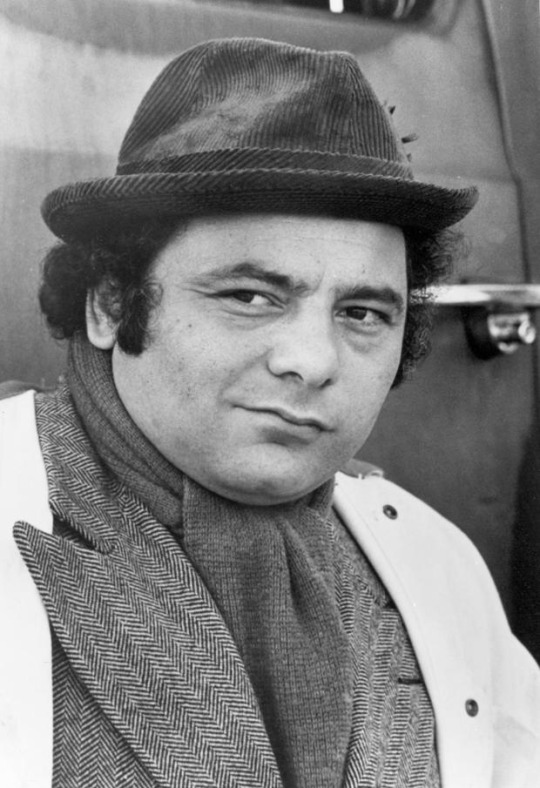
Character actor Burt Young (April 30, 1940-October 8, 2023)

Irish-English actor Sir Michael Gambon (October 19, 1940-September 27, 2023)
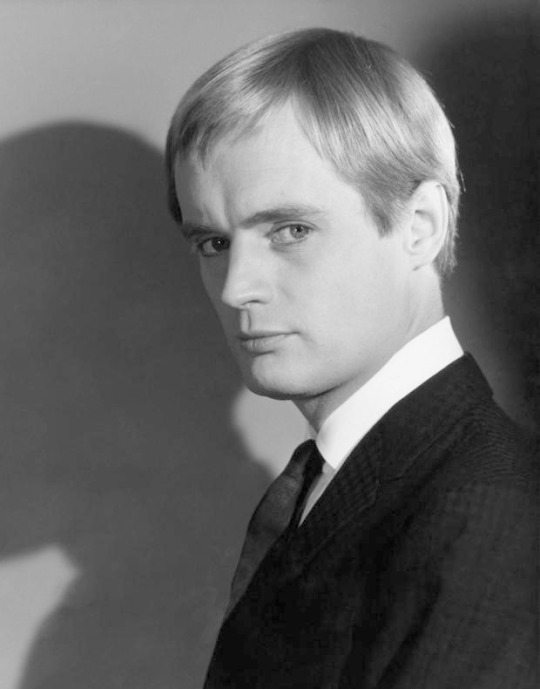
Actor David McCallum (September 19, 1933-September 25, 2023)

The songs of Jimmy Buffett (December 25, 1946-September 1, 2023)

Singer Tina Turner (November 26, 1939-May 24, 2023)

Canadian singer-songwriter Gordon Lightfoot (November 17, 1938-May 1, 2023)
. . . And MANY More...I just couldn't post ALL of them.
NOTHING Last Forever...! (Remember That)
29 notes
·
View notes
Text


Top: Life Magazine, November 14, 1938 - Brenda Frazier
Below: Diane Arbus, Brenda Diana Duff Frazier, 1938 Debutante of the Year, at home, 1966
#diane arbus#brenda frazier#american artist#american photography#american photographer#portrait photography#portrait artist#portraiture#aesthetic#beauty#debutante#modern art#art history#aesthetictumblr#tumblraesthetic#tumblrpic#tumblrpictures#tumblr art#tumblrstyle#american art#artists on tumblr
19 notes
·
View notes
Text
Birthdays (bc I can)
I put my own fancasts and my headcannon b-day'
Euphemia Braithewaite-Potter - January 4, 1907
Walburga Irma-Black - April 17, 1907
Fleamont Potter - May 15, 1909
Charlus Potter (Monty' brother) - August 19, 1900
Lucretia Black (Orion' sister) - August 3, 1914
Orion Black - September 30, 1920
Druella Rosier (Axel' sister) - December 31, 1928
Axel Rosier (Rosier twins dad) - November 14, 1930
Cygnus Black (Black sisters dad) - July 30, 1938
Adele Jacob-Rosier (Rosier twins mom) - June 7, 1938
Alphard Black - June 26, 1925
Rodolphus Lestrange - October 19, 1952
Rabastan Lestrange- September 21, 1954
Lucius Malfoy - July 1, 1954
Enid Pettigrew (Peter' sister) - January 30, 1962
Mason McKinnon (Marlene' brother) - December 20, 1952
Mitchell McKinnon (Marlene' brother) - June 25, 1955
Matthew McKinnon (Marlene' brother) - November 7, 1958
Maxwell McKinnon (Marlene' brother) - February 29, 1962
Petunia Evans-Dursley - January 10, 1958
Mavan Rosier (Rosier twins brother) - March 14, 1965
Annabella Rosier (Rosier twins sister) - April 16, 1968
Elizabeth Meadows (Dorcas' sister) - May 1, 1965
Fabian Prewett - September 30, 1958
Gideon Prewett - September 30, 1958
Molly Prewett-Weasley - October 30, 1949
Billius Weasley (Arthur' brother) - May 26, 1952
Arthur Weasley - February 6, 1950
James Potter - March 27, 1960
Remus Lupin - March 10, 1960
Sirius Black - November 3, 1960
Peter Pettigrew - August 31, 1960
Lily Evans-Potter - January 30, 1960
Mary Macdonald - September 16, 1959
Marlene McKinnon - August 1, 1960
Dorcas Meadows - April 2, 1960
Bartemius Crouch Jr. - July 9, 1961
Evan Rosier - June 20, 1961
Pandora Rosier - June 20, 1961
Regulus Black - December 31, 1961
Alice Fortescue-Longbottom - August 14, 1960
Frank Longbottom - September 14, 1959
Ted Tonks - March 20, 1953
Emmeline Vance - July 18, 1957
Rita Skeeter - December 19, 1951
Ophelia Zabini - January 15, 1951
Emma Vanity - February 28, 1960
Andromeda Black - October 10, 1953
Narcissa Black - July 19, 1955
Bellatrix Black - May 2, 1991
Tom Riddle Jr. - February 19, 1979
Mattheo Riddle - January 20, 1980
Aliana Riddle - January 20, 1980
Mandy Lestrange - March 13, 1985
Cara Lestrange - May 23, 1986
Delphini Riddle - August 16, 1987
Lorenzo Berkshire - December 17, 1996
Nymphadora Tonks - October 8, 1973
Nina Tonks (Nymphadora' sister) - June 13, 1978
Lucas Rosier (Rosekiller child) - July 21, 1985
Nicholas Rosier (Rosekiller child) - July 1, 1987
Draco Malfoy - June 5, 1980
Lila Malfoy (Draco' sister) - June 5, 1980
Artemis McKinnon (Dorlene child) - September 13, 1981
Aries McKinnon (Dorlene child) - October 17, 1982
Jack McKinnon (Dorlene child) - January 23, 1987
Harry Potter - July 31, 1980
Lillian Potter (Harry' sister) - July 31, 1980
Rose Potter (Harry' sister) - May 24, 1981
Leo Potter (Harry' brother) - February 16, 1983
Pansy Parkinson - August 1, 1980
Blaise Zabini - November 1, 1980
Teddy Lupin - April 11, 1985
Neville Longbottom - July 30, 1980
Juliana Longbottom (Neville' sister) - October 15, 1986
Nicky Longbottom (Neville' brother) - October 15, 1986
Penelope Vance (Emmary child) - November 12, 1988
Hermione Granger - September 19, 1980
Violet Granger (Hermione' sister) - May 14, 1979
Bill Weasley - November 29, 1970
Charlie Weasley - December 12, 1972
Percy Weasley - August 22, 1976
Fred Weasley - April 1, 1978
George Weasley - April 1, 1978
Ron Weasley - March 1, 1980
Ginevra Weasley - August 11, 1981
Luna Lovegood - February 13, 1981
Eclipse Rosier (Pandalily child or Luna' sister) - January 11, 1985
7 notes
·
View notes
Photo
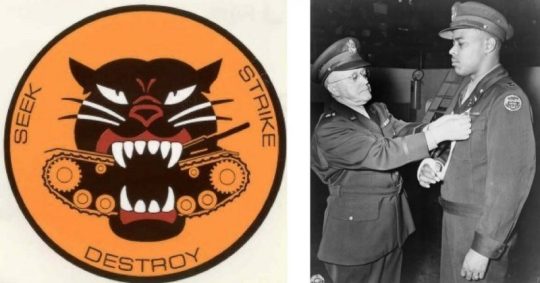
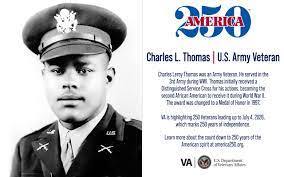
Charles Leroy Thomas was born 17 April 1920 in Birmingham, Alabama. He grew up in Detroit and graduated from Cass Technical High School in 1938. Thomas then worked as a molder for the Ford Motor Company (Ford River Rogue factory) with his father, and was a student at Wayne State University studying mechanical engineering.
He was drafted, and entered the U.S. Army on January 20, 1942, at Fort Custer, Michigan. He completed Basic and Advanced Infantry Training at Camp Wolters and was assigned to the Infantry Replacement Training Center at Camp Wolters.
When the Army began forming tank destroyer units, Thomas was transferred to Camp Carson, Colorado and joined the segregated 614th Tank Destroyer Battalion, which had been activated on July 25, 1942. The soldiers were African, but most of the officers were white. Thomas quickly rose to the rank of Sergeant during unit training and was chosen to attend the Tank Destroyer Officer Candidate School (OCS) Class # 21 at Camp Hood, Texas when the battalion was transferred to Camp Bowie Texas on December 18, 1942.
Thomas was commissioned a second lieutenant upon graduation from OCS on March 11, 1943, and returned to Camp Bowie to assume command of Company C, 614th Tank Destroyer Battalion and prepared the unit for the move to Camp Hood that was completed on March 23, 1943.
On August 27, 1944, he deployed with the 614th to England, arriving on September 7. On October 8, the 614th was on Utah Beach in Normandy, France. The 614th led by Lieutenant Colonel Frank S. Pritchard, then would join General Patton's Third Army in Metz, France. The 614th saw its first combat on November 28. On December 5, the 614th was attached to 411th Infantry Regiment, and on December 6, the 614th was attached to the 103rd Infantry Division..
On December 14, 1944, 1st Lt. Thomas volunteered to lead 3rd Platoon, C Company, 614th Tank Destroyer Battalion in a task force named "Task Force Blackshear" to storm and capture the village of Climbach, a strategically important town which was five miles from the German border. The task force spearheaded by Thomas' M20 scout car (modified M8), consisted of a platoon of Sherman tanks from the 47th Armored Battalion, 14th Armored Division, a platoon of F Company (riding on tanks), 411th Infantry, 103rd Infantry Division, 3rd Platoon, C Company, 614th Tank Destroyer Battalion, rest of F Company, 411th Infantry, and a heavy weapons platoon. Approaching Climbach was uphill, Thomas' armored scout car was knocked out by enemy fire from the German 21st Panzer Division, and he was wounded.
Thomas helped his crew out of the vehicle, but as he left the car's protection, he was again wounded in the chest, legs and arms. Despite his wounds, Thomas directed the dispersal and emplacement of the anti-tank guns, which then returned fire and covered the attempt by the rest of the task force to outflank the defenders. He briefed the 3rd Platoon leader of C Company, a first lieutenant, on the general situation, and only when he was sure the situation was under control did he allow himself to be evacuated. 3rd Platoon, C Company continued to fight for four hours, losing two of its four guns and over half its men as casualties (3 dead, 17 wounded).
The "valorous conduct" of the platoon, "in the face of overwhelming odds enabled the task force to capture its objective", the village of Climbach, and forced the defenders to withdraw to the Siegfried Line. 3rd Platoon, C Company, 614th Tank Destroyer Battalion, was awarded a Distinguished Unit Citation, the first black combat unit, and the first unit attached to the 103rd Division to be so honored. Its soldiers received four Silver Stars and nine Bronze Stars. Captain Thomas received the Distinguished Service Cross on February 20, 1945, and returned home a hero, though he played down his role – "I know I was sent out to locate and draw the enemy fire, but I didn't mean to draw that much." Thomas remained in the Army, and retired with the rank of major on August 10, 1947.
Thomas married in 1949, and his wife and he had two children. He went to work as a missile technician at Selfridge Air Force Base and later as a computer programmer for the Internal Revenue Service. He died of cancer on February 15, 1980. He was buried in Westlawn Cemetery in Wayne, Michigan.
In the early 1990s, it was determined that African soldiers had been denied consideration for the Medal of Honor (MOH) in World War II because of their race. In 1993, the U.S. Army had contracted Shaw University in Raleigh, North Carolina, to research and determine if there was racial disparity in the review process for recipients of the MOH. The study commissioned by the U.S. Army, described systematic racial discrimination in the criteria for awarding decorations during World War II. After an exhaustive review of files, the study recommended in 1996 that ten African Americans who served in World War II be awarded the MOH. In October of that year, Congress passed legislation that would allow President Clinton to award the Medal of Honor to these former soldiers. Seven of the ten including Thomas were approved, and awarded the MOH (six had Distinguished Service Crosses revoked and upgraded to the MOH) on January 12, 1997. On January 13, 1997, President Clinton presented the MOH to the seven African Americans; Major Thomas and five others were posthumously presented the MOH. A niece of Thomas accepted his MOH during the ceremony. Vernon Baker was the only living recipient of the medal at the time.
Medal of Honor Citation stated the following:
For conspicuous gallantry and intrepidity at the risk of his life above and beyond the call of duty: Then Lieutenant Charles L. Thomas distinguished himself by extraordinary heroism in action on 14 December 1944. One platoon of Company C, 614th Tank Destroyer Battalion, was designated as the lead element in a task force formed to storm and capture the village of Climbach, France. Lieutenant Thomas, the Commanding Officer of Company C, realized, with the obscurity of information regarding the enemy and a complete lack of reconnaissance, the mission would be an extremely dangerous one. Fully cognizant of the danger, Lieutenant Thomas volunteered to command the selected platoon of his company and ride in the column's leading vehicle - a highly maneuverable, but equally vulnerable, M-20 scout car. Lieutenant Thomas knew that if there was a concentration of enemy armor in the village, as was believed, he would absorb the initial shock of the first enemy resistance. The task force left Preuschdorf, France, at 1023 hours, and proceeded to advance in column toward Chimbach. Lieutenant Thomas in his scout car stayed well in front of the column. At 1400 hours, upon reaching the high ground southeast of the village, Lieutenant Thomas experienced initial contact with the enemy. As his scout car advanced to an exposed position on the heights, he received intense direct fire from an enemy artillery, self-propelled guns, and small arms at a range of seven hundred yards. The first burst of hostile fire disabled the scout car and severely wounded Lieutenant Thomas. He immediately signaled the column to halt. Before leaving the wrecked vehicle, Lieutenant Thomas and the crew found themselves subjected to a veritable hail of enemy fire. Lieutenant Thomas received multiple gunshot wounds in his chest, legs, and left arm. In spite of the intense pain caused by his wounds, Lieutenant Thomas ordered and directed the dispersion and emplacement of his first two antitank guns. In a few minutes these guns were effectively returning the enemy fire. Realizing that it would be impossible for him to remain in command of the platoon because of his injuries, Lieutenant Thomas then signaled for the platoon commander to join him. Lieutenant Thomas then thoroughly oriented him as to the enemy gun positions, his ammunition status, and the general situation. Although fully cognizant of the probable drastic consequences of not receiving prompt medical attention, Lieutenant Thomas refused evacuation until he felt certain that his junior officer was in full control of the situation. Only then did Lieutenant Thomas allow his evacuation to the rear. Throughout the action, Lieutenant Thomas displayed magnificent personal courage and a complete disregard for his own safety. His extraordinary heroism spurred the soldiers of the platoon to a fierce determination to triumph, and resulted in a mass display of heroism by them. Lieutenant Thomas' intrepid actions throughout the operation reflect the highest traditions of the military service.
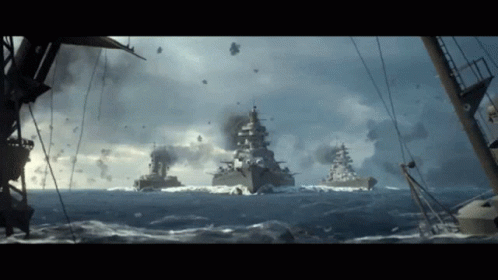
37 notes
·
View notes
Text








The Lions Gate Bridge, connecting Vancouver to the North Shore region, opened to traffic on November 14, 1938.
#Lions Gate Bridge#opened to traffic#14 November 1938#Vancouver#BC#Charles Nicholas Monsarrat#summer 2012#Canada#engineering#Philip Louis Pratley#Burrard Inlet#Pacific Ocean#anniversary#85th history#British Columbia#suspension bridge#landmark#tourist attraction#Stanley Park#Canada Place#Canadian history#2023#travel#original photography#vacation#cityscape#architecture
5 notes
·
View notes
Text

LETTERS FROM AN AMERICAN
January 2, 2024
HEATHER COX RICHARDSON
JAN 3, 2024
The new year has hit with news flying in from a number of quarters.
At home, minimum wage increased in nearly half of U.S. states; it has been 14 years since the last increase in the federal minimum wage, the longest stretch since 1938 according to the AFL-CIO. NPR correspondent David Gura quoted Goldman Sachs’s chief equity strategist to note, ”The S&P 500 index returned 26% including dividends in 2023, more than 2x the average annual return of 12% since 1986.”
Representative Bill Johnson (R-OH) today submitted his resignation, effective January 21, to become the president of Youngstown State University. This shaves the Republican majority in the House of Representatives even thinner. With the recent expulsion of George Santos (R-NY) and resignation of Kevin McCarthy (R-CA), the Republicans will control just 219 seats, permitting them a margin of only two seats to pass legislation when the House returns on January 9.
The Republican House has been one of the least effective in history, and it has its work cut out for it in the new year. The first phase of the continuing resolution Congress passed in November to fund the government expires on January 19, ending funding for transportation, housing, energy, agriculture, and veterans’ affairs. The second phase expires on February 2. Much of the 2018 Farm Bill that covers food and farm aid expired in 2023. As of yesterday, January 1, the items usually covered in farm bills fall under a hodge-podge of fixes, with some old provisions from the 1930s and 1940s going back into force.
Also outstanding is the measure to provide supplemental funding for Israel, Ukraine, and the southern border between the U.S. and Mexico, as well as providing humanitarian assistance for Palestinian civilians in Gaza.
House Republicans refused to pass that measure unless it included their own extreme anti-immigration measures, but they have refused to participate in efforts to hash out legislation, clearly preferring to keep the issue hot to use against the Democrats in 2024. Since President Joe Biden took office, he and Homeland Security Secretary Alejandro Mayorkas have asked Congress for additional funding for Customs and Border Patrol officers and additional immigration courts, but despite Republicans’ own demand for such legislation, House speaker Mike Johnson (R-LA) wrote to Biden in December demanding that he impose stricter immigration rules and build a border wall through executive action. Today, Senator Ron Johnson (R-WI) echoed the idea that Biden, not Congress, should deal with the border.
Meanwhile, Emily Brooks and Rebecca Beitsch of The Hill reported today that about 60 House Republicans are planning to visit the border in Texas to emphasize the issue. They are also preparing to impeach Mayorkas on the grounds that he has failed to meet the requirements of the Secure Fence Act, “which defines operational control of the border as a status in which not a single person or piece of contraband improperly enters the country.” As Brooks and Beitsch point out, “not a single secretary of Homeland Security has met that standard of perfection.” House Republicans plan to hold hearings on impeaching Mayorkas, but Homeland Security Committee chair Mark Green (R-TN) has suggested to the Fox News Channel that the articles of impeachment are already written.
At the intersection of domestic and foreign affairs, Senator Robert Menendez (D-NJ), whom federal prosecutors have already indicted for using his office to work for Egypt, was charged again today with using his political influence to work for the government of Qatar. This is a big deal: at the time, Menendez was the chair of the Senate Foreign Relations Committee, a key position in the U.S. government. Two Republican operatives are pleading guilty to evading lobbying laws in their own work for Qatar; their activities appear to have been much more limited than Menendez’s.
The turn of the new year has also produced lots of news in foreign affairs.
On February 4, 2021, just after Secretary of State Antony Blinken took office, Biden spoke at the State Department and said “the message I want the world to hear today” is that “America is back. Diplomacy is back at the center of our foreign policy.” In a New York Times article from December 31, Peter Baker, Edward Wong, Julian E. Barnes, and Isabel Kershner emphasize that Biden and his team have been engaged constantly in diplomacy with Israel, Qatar, Jordan, Egypt, Saudi Arabia, the United Arab Emirates, and Oman. Since the October 7, 2023, attack by Iran-backed Hamas on Israel, Biden has spoken with Israeli prime minister Benjamin Netanyahu 14 times and visited Israel; Blinken has traveled to the region three times and visited Israel five times.
On December 22, in the Christian Science Monitor, Arab political journalist Taylor Luck and correspondent Fatima AbdulKarim reported that Arab Gulf states, Egypt, Jordan, the U.S., and the European Union have created “[a] massive postwar reconstruction plan…for the besieged Gaza Strip.” The plan is to “rebuild the coastal strip, unite and overhaul Palestinian governance, and create a Palestinian security force in Gaza to ensure Palestinian and Israeli security.”
Arab diplomats insist the reconstruction of southern Gaza, including alleviating suffering, rebuilding housing and infrastructure, and restoring jobs, must be “rapid”; Gulf states have set $3 billion a year for ten years as the first budget. The plan calls for a “revamped and revitalized” Palestinian Authority to govern Gaza and the West Bank with current president Mahmoud Abbas as a figurehead and an apolitical unity government running affairs.
The plan is still developing, but already the main obstacles are Israel’s governing coalition, led by Netanyahu, who refuses the ideas of a two-state solution and of a Palestinian Authority in charge of Gaza, and Hamas, which Gulf states as well as the U.S. reject as a participant in the future governance of Gaza. Other Iran-backed militias also oppose such a solution.
From the beginning of the Hamas-Israel war, the Biden administration has been very clear that its first goal was to make sure the conflict didn’t spread, with Lebanon’s Iran-allied Hezbollah and other proxy militias joining in fully. Biden immediately sent two carrier groups to the region and promised “to move in additional assets as needed.” On October 10 he warned: “Let me say again—to any country, any organization, anyone thinking of taking advantage of this situation, I have one word: Don’t. Don’t.”
The New York Times piece by Baker, Wong, Barnes, and Kershner revealed that Biden and his national security team, including Secretary of State Antony Blinken and national security advisor Jake Sullivan, also warned Netanyahu against launching a preemptive strike on Hezbollah. Israel and Hezbollah have been attacking each other with drones, missiles, and air strikes along the countries’ border.
Meanwhile, Iran-backed Houthi rebels from Yemen have attacked ships in the Red Sea, which is one of the world’s busiest shipping lanes, handling about 12% of global trade and about 8.2 million barrels of crude oil and oil products every day. On December 31, four small boats attacked the Hangzhou, a container ship from the Danish shipping giant Maersk sailing under a Singapore flag, and then fired on the U.S. Navy helicopters that responded to the Hangzhou’s distress call. The helicopter crews sank three of the boats, killing their crews; the fourth fled.
Today, Iran sent a naval frigate to the Red Sea, and Maersk announced it would stop using the Red Sea route until further notice. Hezbollah media said that an Israeli drone strike in Beirut, Lebanon, killed Saleh Arouri, the deputy political head of Hamas and a founder of its military wing. Hezbollah has vowed to retaliate.
Also today, in response to calls from Israeli cabinet members for the resettlement of Palestinians outside Gaza, the U.S. State Department issued a “rejection” of both the language and the idea. “We have been clear, consistent, and unequivocal that Gaza is Palestinian land and will remain Palestinian land, with Hamas no longer in control of its future and with no terror groups able to threaten Israel. That is the future we seek, in the interests of Israelis and Palestinians, the surrounding region, and the world.”
And in today’s Washington Post, Lebanon’s former prime minister Fouad Siniora and former Lebanese lawmaker Basem Shabb noted that “[d]espite the ferocity of the bombing and the great loss of innocent civilian lives in Gaza, the conflict remains largely contained to an Israeli-Palestinian confrontation—and more specifically, is broadly understood in the Arab world to be a conflict with Hamas, a non-state actor,” but warned the conflict must not spread. They noted that in November, “[i]n a first, 57 Arab and Islamic countries…called for a peaceful resolution to the Palestinian-Israeli conflict based on a two-state solution,” the same concept embraced by the Biden administration.
“In response to Israel’s atrocities in Gaza, the Arab world responded with denunciation—but, more importantly, with diplomacy. No military threats were issued by any of the Arab states toward Israel,” the Lebanese lawmakers pointed out. They urged Israel to embrace the two-state solution “and, in doing so, usher in a new era in the Middle East.”
Lots of pieces moving around the board on this second day of January 2024.
LETTERS FROM AN AMERICAN
HEATHER COX RICHARDSON
#2024#Letters from An American#Heather Cox Richardson#political#war in Israel#Israel-Hamas war#diplomacy#do-nothing Republican#US House of Representatives#two state solution
6 notes
·
View notes
Text
Okay, listen to me-
I HATE not knowing fictional characters birthdays
so here's my take on them!!
- by years
- from youngest to oldest
- plus the ages throughout the seasons
- I mention only when the dates are canon (if it isn't mentioned then it's my HC)
- psa: I didn't based this on astrology at all
edit : i added Mikhail Antonov birthday
~
Holly Wheeler: 4 February 1980 - 3./4/5/6
Erica Sinclair: 26 January 1975 - 8/9/10/11
Max Mayfield: 19 September 1971 - 12/13/13/14
Suzie Bingham: 8 August 1971 - 12/13/13/14
Lucas Sinclair: 14 June 1971 - 12/13/14/14
El/Jane Hopper: 8 June 1971 - 12/13/14/14
Dustin Henderson: 29 May 1971 (canon) - 12/13/14/14
Jake ???: 29 April 1971 - 12/13/14/14
Mike Wheeler: 7 April 1971 (canon) - 12/13/14/14
Angela ???: 30 March 1971 - 12/13/14/15
Will Byers: 22 March 1971 (canon) - 12/13/14/15
The girl who has a crush on Will: 30 February 1971 - 12/13/14/15
James Dante: 30 October 1969 - 14/15/15/16
Mikhail Antonov: 26 September 1969 - 14/15/15/16
Gareth Emerson: 7 September 1969 - 14/15/15/16
Troy Walsh: 11 August 1969 - 14/15/15/16
Vickie ???: 3 November 1968 - 15/15/16/17
Jeff ???: 2 November 1968 - 15/15/16/17
Robin Buckley: 15 August 1968 - 15/16/16/17
Patrick McKinney: 16 April 1968 - 15/16/17/17
Keith ???: 16 March 1968 - 15/16/17/18
Jonathan Byers: 24 October 1967 - 16/17/17/18
Heather Holloway: 20 October 1967 - 16/17/17/18
Barbara Holland: 13 September 1967 (canon) - 16/x/x/x
Fred Benson: 4 August 1967 - 16/17/17/18
Chrissy Cunningham: 13 June 1967 (semi-canon) - 16/17/18/18
Nancy Wheeler: 31 May 1967 - 16/17/18/18
Argyle ???: 23 May 1967 - 16/17/18/18
Billy Hargrove: 29 March 1967 (canon) - 16/17/18/x
Jason Carver: 6 March 1967 - 16/17/18/19
Eden Bingham: 23 January 1967 - 16/17/18/19
Steve Harrington: 5 December 1966 - 16/17/18/19
Tommy Hagan: 31 July 1966 - 17/18/18/19
Carol Perkins: 2 June 1966 - 17/18/18/19
Tammy Thompson: 12 July 1965 - 18/19/19/20
Eddie Munson: 28 April 1965 - 18/19/20/20
Kali Prasad: 8 May 1964 - 19/20/21/21
Terry Ives: 6 September 1951 - 31/32/32/33
Phil Callahan: 22 June 1949 - 34/35/36/36
Scott Clarke: 12 October 1948 - 35/36/36/37
Becky Ives: 30 June 1947 - 36/37/38/38
Claudia Henderson: 3 May 1947 - 36/37/38/38
Bob Newby: 3 February 1947 - 36/37/x/x
Henry Creel: 28 January 1947 - 36/37/38/39
Dmitri Antonov (Enzo): 3 December 1946 - 36/37/38/39
Calvin Powell: 17 June 1944 - 39/40/41/41
Karen Wheeler: 9 April 1944 - 39/40/41/41
Alice Creel: 29 February 1944 - would be 39 in S1
Murray Bauman: 1 January 1944 - 39/40/41/42
Joyce Byers: 21 September 1942 - 41/42/42/43
Sue Sinclair: 6 January 1942 - 41/42/43/44
Jim Hopper: 18 November 1941 - 41/42/43/44
Lonnie Byers: 10 July 1940 - 43/44/44/45
Charles Sinclair: 20 July 1939 - 44/45/45/46
Ted Wheeler: 18 February 1938 - 45/46/47/48
Martin Brenner: 24 June 1931 - 52/53/54/54
Sam Owens: 17 August 1924 - 59/60/61/61
#here have somes dates!!#do whatever you want with it#stranger things#byler#i'm absolutely not going to tag every character#vrysorcha#personal#st5#stranger things s5#mikhailgate#insane vry
114 notes
·
View notes
Text
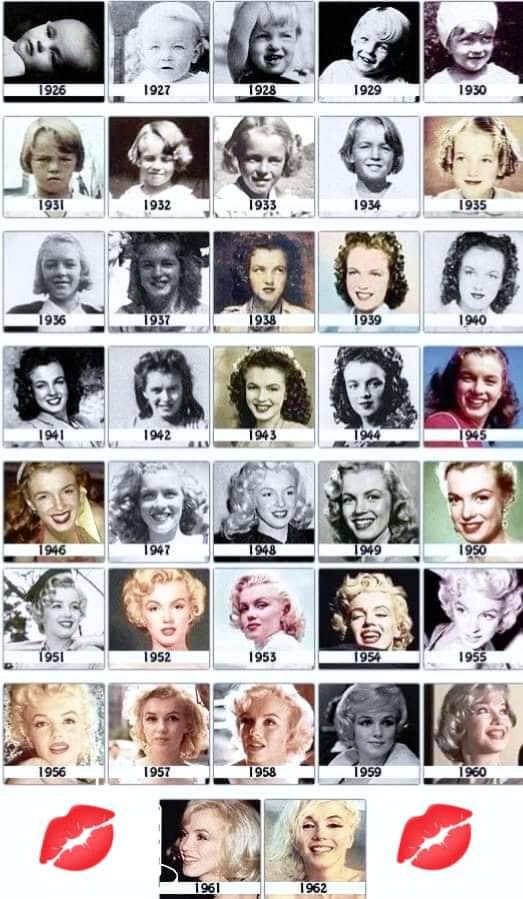
Norma Jeane to Marilyn Monroe 1926 - 1962. (Scroll down for 1926 - 1962)💋
1926
June 1: Birth at Los Angeles General Hospital.
June 13: Taken to live with the foster family, the Bolenders.
1933💋
Fall: Mother Gladys Baker takes Norma Jeane to live with her.
1934💋
February: Gladys Baker taken to an institution.
1935💋
June 1: Grace McKee becomes legal guardian.
September 13: Norma Jeane is left at the orphanage.
1937💋
June 26: Grace McKee takes her away from the orphanage.
1938💋
November: Goes to live with 'Aunt' Ana Lower.
1942💋
June 19: Marries James E. Dougherty.
1944💋
April: Norma Jeane starts work at the Radio Plane Munitions Factory.
1946💋
April: First National Magazine cover, in 'Family Circle'.
June 26: Photographed by David Conover for 'Yank' magazine.
July 19: First Screen-Test, for 20th Century Fox.
July 23: First Six Months studio contract, renewed in January.
July 29: First mention in a Hollywood gossip Column (Hedda Hopper).
August 2: Norma Jeane Dougherty applies to join the 'Blue Book Modeling Agency'.
September 13: Divorce granted from James E. Dougherty.
1947💋
August 25: Fox Contract not renewed for a second time.
1948💋
February: Marilyn befriends mogul Joseph M. Schenck.
March 9: Contract with Columbia Pictures.
September 8: Dropped by Columbia.
December 31: Meets agent Johnny Hyde, who indicates himself to promote her.
1949💋
May 27: Poses for photographer Tom Kelley - the nude Calendar shots.
July 24: First interview with Earl Wilson.
August 15: Starts shooting 'A Ticket To Tomahawk'.
October: Sings contract with MGM for the breakthrough role in 'The Asphalt Jungle'.
1950💋
January 5: Starts shooting 'The Fireball'.
April: Lands small but perfectly formed part in 'All About Eve'.
December 18: Johnny Hyde dies.
1951💋
March 29: Presents an Oscar at the Academy Awards ceremony.
April 18: Shooting starts on 'Love Nest'.
May 11: Latest six months contract and Fox converted to seven-year deal.
September 8: First full length national magazine feature in 'Colliers'.
1952💋
March: Marilyn and Joe DiMaggio go out on a first date.
March 13: Nude calendar story broken to public.
April 7: First 'Life' cover snapped by Phillipe Halsman.
June 1: On her birthday leans she is to be Lorelei Lee in 'Gentlemen Prefer Blondes'.
August 31: Live radio debut.
September 2: Grand marshal at the Miss America pageant.
1953💋
January, 21: She becomes a star when 'Niagara' is released.
January, 26: Marilyn and Jane Russell put their hand and feet prints in wet cement. At Graumann's Chinese Theater.
September, 13: TV debut at the 'Jack Benny Show'.
November, 4: Premier of 'How To Marry a Millionaire'.
December 15: Doesn't appear for shooting of 'The Girl in Pink Tights'.
1954💋
January, 4: Suspended by Fox.
January, 14: Marriage with Joe Dimaggio in San Francisco.
February, 2: They arrive at Tokyo Airport.
February, 16: Marilyn gives 10 concert's for the American soldiers in Korea.
September, 15: The shooting for the blowing skirt scene, included in the movie 'The Seven Year Itch'.
October, 5: Marilyn divorces Joe DiMaggio.
November, 6: Hollywood party in honor of Marilyn.
1955💋
January, 7: Press conference for 'Marilyn Monroe Productions Inc.'.
January, 15: Marilyn moves to the East coast, she is also suspended by Fox.
February: She met Lee Strasberg, and joins 'The Actor Studio'.
March, 31: She appears on a pink elephant on a benefit evening in 'Madison Square Garden'.
April, 8: Live in TV program of 'Person2Person' with Edward R. Murrow.
June, 1: Premier of 'The Seven Year Itch'.
1956💋
January, 4: A new contract between Fox and MM Productions.
February, 9: Marilyn and Sir Laurence Olivier announce that they will work together in 'The Sleeping Prince'.
June, 29: She marries Arthur Miller.
July, 14: She travels to London to begin with the shooting of 'The Prince And The Showgirl'.
August: Her first miscarriage.
October, 29: She meets Queen Elizabeth.
1957💋
June, 13: Premier of 'TPATS'.
August, 1: Another miscarriage.
1958💋
August, 4: The shooting of 'Some Like It Hot' begins, until November.
December, 17: Another miscarriage.
1959💋
March, 29: Premier of 'Some Like It Hot'.
1960💋
March, 8: Golden Globe award for 'Best Actress in a Comedy', in 'Some Like It Hot'.
June, 18: The shooting of 'The Misfits' begins.
August, 26: Marilyn is admitted in the hospital, some say in was a suicide attempt.
November, 11: Marilyn announce she divorces Arthur Miller.
November, 16: Clark Gable (who worked with in 'The Misfits') died of an heart attack.
1961💋
January, 20: Divorce of Arthur Miller.
January, 31: Premier 'The Misfits'.
February, 7: She is admitted to the 'Payne Whitney Clinic' in New York.
February, 11: She is admitted to 'Columbia Presbyterian Medical Center'.
October: Meets Robert Kennedy.
November: Meets John. F. Kennedy.
1962💋
February: Moves back to Los Angeles, in Brentwood.
March, 5: She get's a Gold Globe Award for 'World Film Favorite'.
April, 23: Shooting begins for 'Something's Got To Give'.
May, 19: Sings 'Happy Birthday' to JFK in 'Madison Square Garden'.
June, 1: Last workday at Fox.
June, 7: fired by Fox.
June, 23: Rehired by Fox.
July, 20: Admitted to the 'Cedars of Lebanon Hospital'.
August, 3: She appears on the cover of 'Life'.
August, 4: The last day Marilyn Monroe was alive.
August, 5: Marilyn Monroe is found dead in bed, autopsy reveals suicide. (possible)
August, 8: Funeral in 'Westwood Memorial Park Cemetery' 🙏💐🌸⚘️💐🌸⚘️
15 notes
·
View notes
Text
A Synthesized History: An Amateur Comparison of the Perspectives between the "Patriot's," the "People's," & The "True" History of the United States - Part 14
Full Essay Guide link: XX
(Patriot - Chapter 17 | People - Chapter 16 | True - Chapter 25-26)
World War II and Shifting World Powers
As explored in the last section of this essay series, the 1930's were a difficult time for the United States and much of the western world. While the United States coasted through the decade using reactionary short-term economic measures led by president Roosevelt, some European countries responded to the global economic crisis in considerably different ways.
In Germany, a string of antisemitic policies were enacted by their newly appointed chancellor, Adolf Hitler. Much of this antisemitic attitude placed blame of the economic suffering at that time on the shoulders of the Jewish people. The United States was aware of this concerning development but wished to remain neutral on European affairs. Thus, the United States government made no declaration on the xenophobic affairs of Germany. In fact, American companies with trade and/or production ties in Germany continued business as usual. The same applied to fascist Italy, run by Prime Minister Benito Mussolini. When Italy invaded Ethiopia in 1935, the United States remained "neutral" but American companies still actively sold Italy the necessary oil to fuel their war efforts. Essentially, the United States policy of nonintervention benefited the growing fascist regimes.
As tensions increased across Europe over the 1930's, many speculated the potential for another major conflict. Some citizens of the United States participated in peace marches while others participated in strikes on college campuses. Many other citizens were wary of another potential intervention into European affairs, believing the first world war was a costly and pointless endeavor. Roosevelt declared the "Neutrality Acts" in response to this speculative conflict. The Neutrality Acts would allow the United States to refrain from direct intervention but would impose an arms embargo on any belligerents, should a war occur.
The situation in Europe would only grow worse. In 1938, Hitler's German forces invade Austria. Over 3000 Jewish denizens were applying for immigration visas a day to flee the invasion, but due to the United States' recent immigration restrictions, the United States could only apply up to 850 of these immigrants a month.
Despite invading and annexing both Austria and Czechoslovakia, it was not until the invasion of Poland in September, 1939, that Britain and France would declare war on Germany. At this point, Roosevelt began to repeal aspects of the Neutrality Acts. His interactions with other world leaders showed sympathy for their cause and soon enough he and Winston Churchill, Prime Minister of the United Kingdom, would form a political friendship.
With the European conflict growing in magnitude, FDR decided that the potential for national emergency coupled with the ongoing difficulties of the domestic economic depression required further executive leadership. He ran for a 3rd term, something no president before had done. At this point the public was aware of a shifting tide that suggested an eventual intervention in the European conflict was inevitable.
In November, 1940, President Roosevelt won his 3rd term and almost immediately launched aid to Great Britain via executive order. Fifty WWI bombers were declared "obsolete" and sent across the Atlantic to Britain. The United States then began a "lend-lease" policy, which allowed supply aid to be granted under a "borrowed" contract. Critics would often poke at this policy, asking how one could "return used bullets." Regardless, it allowed the United States to intervene and indebted multiple countries to the United States.
After several years of of watching the situation across the ocean, the public acclimated to the idea that American intervention was almost certain. Publications across the country promoted a sympathetic European brother, needing the help of the United States as they fought fascism. At that point there was very little coordinated opposition to the war outside the Socialist Workers' Party. Even the American Communist Party, which had opposed the war in 1939, changed their stance as the conflict continued to look more bleak. Of course, any potential organized opposition was fiercely challenged. The FBI and HUAC monitored for potentially "disruptive" groups. There was also the Smith Act of 1940, which took aspects of the Espionage Act and applied it to peacetime, giving the United States more control to silence dissent.
President Roosevelt and the American government continued to aid the war without being "in" the war. Troops were stationed on both Iceland and Greenland to prevent Nazi's from having easy access to either. The defense perimeter was also extended, and the Navy had orders to track German submarines and report their position to British contacts. Eventually the order was changed to just shooting them on sight. The Germans returned the hostilities and engaged in several attacks on U.S. boats and ships, such as the sinking of freighter SS Robin Moor. These attacks made for effective propaganda tools and led to a more outraged and war-hungry public.
Roosevelt and Churchill's political alliance continued. They devised a document known as the Atlantic Charter which detailed a post-war world after an assumed Allied victory. It was celebrated for declaring the rights of nations to self-determination, restoration of self-government, and more open trading. These and more were outlined by the two optimistic world leaders, one of whom was not even in the war yet.
The United States had initially continued trade with Japan despite their invasive and aggressive war with China, providing them with up to 80% of their oil. The United States eventually imposed sanctions on gasoline, iron, oil, and other commodities. This was potentially in hopes of staunching the Japanese and their aggressive strategy, but instead it merely made them desperate. Japan wanted to force the United States to renegotiate over these sanctions but likely did not intend or want a total war with the United States. Their strategies were desperate and short-sighted, however. On December 7th, 1941, "a date which will live in infamy," the Japanese attacked the Pearl Harbor naval base near Honolulu, Hawaii. Four days later Germany and Italy declared war on the United States.
If the United States had hoped to only engage with Japan, then the declarations of war from the other Axis powers made this impossible. Even with three enemies to fight, though, the United States had large advantages. One, it had the advantage of distance. Being so far removed from most of the fighting, the U.S. could afford to be strategic in how it entered the fight. Two, the U.S. also had nearly double the income of Germany, Italy, and Japan, despite the economic suffering of the Great Depression.
The United States had been preparing for this possibility. Rapidly the country amassed the largest army in its history-- smaller than Germany's and less than half of Russia's, but still the biggest army the United States had ever raised. Never before had a greater proportion of the population participated in a war. Eighteen million served in the armed forces, with 10 million serving overseas, and 25 million citizens giving to the war effort through war bonds. Civilians also helped the war effort by increasing farm production, growing backyard "victory gardens" to help with potential food supply shortages, and by organizing scrap and paper drives.
Multiple organizations were established that helped the U.S. shift completely towards the war effort. The War Production Board and later the Office of War Mobilization helped shift large industries to the war effort by focusing on production of war equipment such as tanks and carriers. The Office of War Information was a propaganda agency that helped continue and enforce public support of the war. The Office of Strategic Services, a pre-runner to the CIA, gathered enemy intelligence.
The Allied Powers comprised of many nations, but the three largest were the United States, the United Kingdom, and the Soviet Union. This was an alliance largely made out of necessity. The United States wanted to expand their economic growth across the Pacific and retaliate for previous attacks. The United Kingdom wanted to maintain the European power structure and its hierarchy. Russia desperately needed aid, as they were taking on the brunt of the German army and were almost constantly engaged with infantry fighting.
Even during the beginnings of this 3-way alliance, signs of the later Cold War were there. The US and UK worked with the Soviet Union but did not trust Stalin and his communist regime. Stalin, likewise, likely held resentment and mistrust due to his ally's continued delay/deferral of establishing a second war front. Russians were being slaughtered by the millions but instead of truly helping their ally, the US and UK deemed fighting and maintaining their influence in Northern Africa was more immediately important. Russia was put in a difficult position, with Stalin reaching out to negotiate with Hitler in December of 1942 and in the summer of 1943, indicating Stalin was not certain of victory against the belligerent Nazis. The 2nd front in the European war finally happened in May of 1944.
The U.S. and U.K. engaged in "strategic" bombings of civilian cities in both Germany and Japan. This was to cause national suffering and weaken the morale and will of the enemy nations. In the European theater, this weakened the German offense against the Soviets, as many of their aircrafts were pulled away from the front to defend the homeland and counter-attack the bombing parties.
June 6th, 1944, is one of the most striking dates in the history of the war-- "D Day." It was the convergence of many military forces from allied countries storming the beaches of Normandy, France, which would ultimately lead to the liberation of France. At this point in the war, Italy's forces had all but collapsed and Germany was now surrounded by enemies. The Soviet Union began to reclaim territory and occupied much of the Germans' invaded lands, including Poland. Germany tried to push an offensive to reclaim territory and fracture the Allies during the Battle of the Bulge. Germans tore a 45 mile wide gap in Allied forces, but when the freezing weather conditions cleared, the Germans were surrounded by overwhelming forces. Soviets occupied Berlin, Mussolini had been killed by Italians forces that opposed the war, and Hitler had killed himself. On May 7th, 1945, Germany declared unconditional surrender. Less than a year after D Day, on May 8th, 1945, ("VE Day") the European theater was won.
The United States was not done, of course. The war in the Pacific was still going strong. Troops adopted an "island hopping" strategy to attempt to gain ground on the Japanese combatants, but progress was slow. Initially, the Japanese dominated the Pacific conflict. This would not last. Key strategic victories on Midway Island and the Guadalcanal airfield, coupled with the cracking of the Japanese naval code helped considerably shift the war's favor to the United States.
The United States had the long-term advantage of a thriving wartime economy whereas the Japanese situation grew increasingly more desperate. Despite the ability to out-produce Japan and the shifting tide of the conflict, the Japanese remained a difficult enemy to fight. This was in part because of the jungle terrain often being fought in, but also because of significant cultural differences that affected the Japanese soldier's views of war and surrender. Honor was a highly regarded cultural value, comparable to the way the U.S. people viewed "freedom," and to surrender or fail to fight was a great mark of shame. Thus, many Japanese combatants refused to stop fighting, potentially believing their lives were worth losing for their country's cause.
The Japanese/American conflict sparked vitriolic racist motivations culturally. When the war in Europe was sold to the American people, it was presented a fight against the rise of fascism. The pacific war was presented as a fight directly against the Japanese. Propaganda depicted the Japanese with grossly stereotyped and exaggerated features. This was also demonstrated the other way around-- American POWs in the European conflict had 90%+ survival rates, versus the 1/3rd of them that died under Japanese capture. This hatred fueled anger and the anger fueled fighting. Racial tensions became so pronounced after the Pearl Harbor attack that the American government was fearful of its own Japanese citizens. Executive Order 9906, signed on February 19th, 1942, ordered the constraint of Japanese-American citizens and immigrants into concentration camps across multiple states. These camps would be active for more than 3 years.
By 1945, the Japanese were confined to their lands, held little supply stability, and had virtually no navy left. Japanese leaders began to probe the possibility of peace through Russian contacts, but Japanese militarists continued fighting. The U.S. would take accept nothing less than "unconditional surrender," which put Japan in a difficult and desperate position. It was unclear how long the Japanese could last but even if their fighting spirit lasted to the last man, it was clear they had no advantage left to them.
The Soviet Union was not far along from entering the Pacific conflict due to an agreement with the United States: Russia would enter the pacific conflict 90 days after victory in Europe was declared. If the United States could force a surrender before Russian forces offered support, it would prevent the Soviets a chance to sink their own self-interests in the potential outcome of the fighting. To force this surrender, the United States unveiled the fruits of a years long weapons project.
Dubbed the "Manhattan Project," this weapons project aimed at building powerful bombs using nuclear energy. The United States was not the only country working on achieving the "atomic bomb," but they were the first to succeed. The project had been in development since 1941 and on August 6th, 1945, the United States used it on the city of Hiroshima. Over 140,000 people were killed by a single bomb. Three days later they dropped a second bomb on Nagasaki, killing over 70,000 people. The death toll would grow even worse as the fallout settled and poisoned many survivors of the initial blasts. With these two bombs, the United States shifted the world's view on what carnage was even possible in war. Emperor Hirohito declared the surrender of the Japanese empire shortly after, on August 15th, and the surrender was formally signed on September 2nd, 1945, ending the global conflict.
President Truman (successor to Roosevelt who died of a brain hemorrhage a month before VE Day) never once showed any regret for using the bombs. In fact, Truman's comments on the bombs indicated that he had always intended on using any and all of the weapons at his disposal to win the war. Some historians argue that bleak projections on the potential casualties if a mainland invasion was attempted over the atom bombs, demonstrated that far more would have died. The United States lost many of its troops to the Pacific front and many feared worse loss. Despite this claim, the United States Strategic Bombing Survey would later conclude that the bombing was unlikely a "necessary" strategy.
World War II fundamentally changed the power structure of the western world, shifting much of the power to the isolationist United States. This shift made sense when considering the variables. The United States already had a considerable ability to generate economic production, and the shift to a wartime economy pushed production even further. Countries were granted aid by the United States but usually owed that capital in return. Europe's primary powers were ravaged and needed time to heal after once again losing millions to a global war. The Soviet Union was also set to become a major superpower but was at a disadvantage compared to the U.S. due to their massive war casualties and a comparative lack of initial economic power.
The United States, under Truman's leadership, moved away from its isolationist tendencies and began to more actively intervene in the world. These interventions were framed as being against the "rule of force," justifying these interventions as a necessary good. This new intervention strategy was quickly seen during the Korean War, in which the United States intervened by supporting South Korea while China and the Soviet Union supported North Korea. Proxy wars like this would become more common going forward.
Anti-communist tendencies began to really take hold in daily American life. These anti-communists sentiments were not uncommon before, but with the threat of fascism gone and the United States now poised as a world leader, communism was the next "bogeyman" for a patriotic and fearful population. This fear and hatred towards communism also created a web of community and national identity. This fear served an even greater purpose, though.
With the threat of a potential new enemy, the United States ensured that it could maintain its wartime economy whether it was fighting or not. The military would also continue to grow, enforcing the United States' powerful empire. In 1950 the United States had a total yearly budget of $40 billion dollars with $12 billion dedicated to the military. By 1955 the military budget alone was $40 billion from a total budget of $62 billion.
Other events that followed the war included the alliance of the United States and Saudi Arabia due to oil, the founding of the United Nations with the United States as one of its head leaders, and the issuance of executive order 9835, which enforced searching for "disloyal" persons.
The United States was now, for better or worse, leader of the "free world" after all other powers had fallen behind.
Final Thoughts:
This essay marks a turning point in the history of the United States that I believe will continue to be noticeable in future entries. This is where the United States truly takes its place as an "Empire of Liberty" in the greater world.
I believe that this section is also important in understanding the myth of American exceptionalism. With the United States intervening in the war but skirting by the worst consequences of the war, the United States became, in a way, "superior." It is not surprising then, that the population at large saw itself as a perfect country. The wartime economy also saved the country from the Great Depression and allowed for an economic bliss in the 1950's that no decade after has had in quite the same way.
I will be interested to see how this new position in the world affects the United States going forward and how those influences likely echo in our modern world.
#A Synthesized History#A True History#A People's History#A Patriot's History#Larry Schweikart#Michael Allen#Howard Zinn#Daniel A Sjursen#American History#History
2 notes
·
View notes
Text
Barbara Jones-Hogu (1938-2017)
#bornOnThisDay Barbara Jones-Hogu (1938-2017)
was an African-American artist best known for her work with the Organization of Black American Culture (OBAC) and for co-founding the artists' collective AfriCOBRA. Via Wikipedia #PalianSHOW
Barbara Jones-Hogu April 17, 1938 – November 14, 2017was an African-American artist best known for her work with the Organization of Black American Culture (OBAC) and for co-founding the artists’ collective AfriCOBRA. Via Wikipedia (photo)
Jones-Hogu worked in a variety of printing techniques, including woodcuts, etchings, lithographs, and screen prints. Her work dealt directly with social and…

View On WordPress
#African-American#African-American artist#AfriCOBRA#Black American Culture#black artist#black herstory#blackartist#Brooklyn Museum#herstory#OBAC#unite
2 notes
·
View notes
Photo

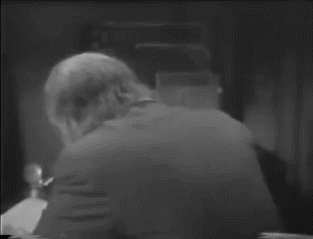



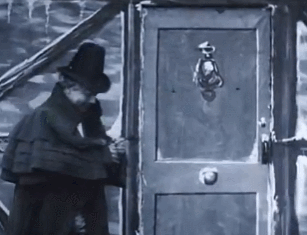
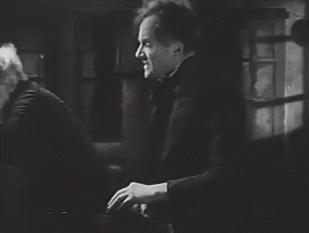
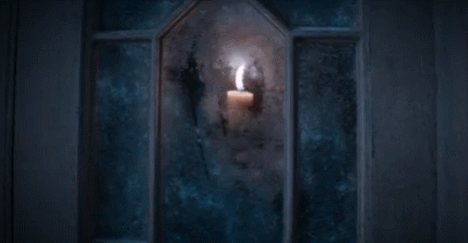
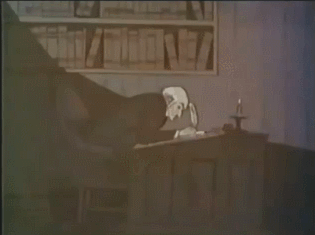

25 Days of A Christmas Carol
In order to celebrate the season, Charles Dickens’ masterpiece and its many adaptations, I will be posting a gifset of a different version of A Christmas Carol each day of December until the 25th! (+ a prelude on November 30 because I couldn’t help myself).
Simply follow my blog or the tag #25acc.
Starting November 30, 2022
Prelude: A Christmas Carol (2019)
December 1: A Christmas Carol (2001)
December 2: Scrooge, or Marley’s Ghost (1901)
December 3: A Christmas Carol (1969)
December 4: A Christmas Carol (1954)
December 5.1: The Stingiest Man In Town (1978)
December 5.2: The Stingiest Man In Town (1956)
December 6: A Christmas Carol (1926)
December 7: A Christmas Carol (1993)
December 8: Scrooge (1935)
December 9: A Christmas Carol (1971)
December 10: The Christmas Carol (1949)
December 11: Mr. Magoo’s Christmas Carol (1962)
December 12: Scrooge (1951)
December 13: Brer Rabbit’s Christmas Carol (1992)
December 14: Scrooge (1970)
December 15: A Christmas Carol (2009)
December 16: Scrooged (1988)
December 17: A Carol For Another Christmas (1964)
December 18: A Christmas Carol (1982)
December 19: A Christmas Carol (1997)
December 20: The Muppet Christmas Carol (1992)
December 21: A Christmas Carol: The Musical (2004)
December 22: A Christmas Carol (1984)
December 23: Doctor Who: A Christmas Carol (2010)
December 24: Mickey’s Christmas Carol
December 25: A Christmas Carol (1999)
Bonus December 26: Un Chant De Noël (Youtube Short, 2018)
Bonus December 27: A Christmas Carol (1910)
Bonus December 28: Barbie In A Christmas Carol (2008)
Bonus December 29: Weihnachtslied in Prosa oder Eine Geistergeschichte zum Christfest (1960)
Bonus December 30: Scrooge, Canto di Natale (Musical 2014)
Bonus December 31: A Christmas Carol (1938)
#25acc#a christmas carol#my edits#ebeneezer scrooge#charles dickens#yes i actually know that many versions i love it so much#and i thought this would be a fun little advent calendar
51 notes
·
View notes